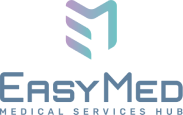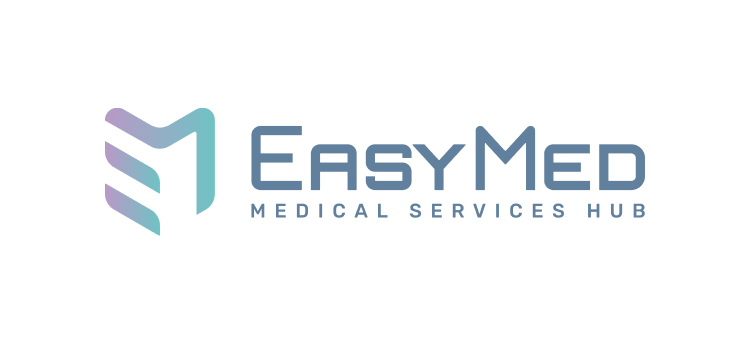
Magnetic resonance imaging of the foot
Magnetic resonance imaging of the foot is a non-invasive diagnostic procedure designed to produce high-quality images of foot structures, including bones, joints, ligaments, and soft tissues. This diagnostic method plays an important role in accurately detecting and treating many foot diseases.
Дополнительные процедуры:
- Лабораторный анализ мочи
- Элемент списка #2
- Элемент списка #3
MRI of the foot with EasyMed
EasyMed is your reliable partner, offering search and appointment services for foot MRI in well-known clinics in Israel. We take care of all aspects of the procedure, from choosing a clinic to accompanying clients at every stage of the diagnostic process.
Cooperation with EasyMed guarantees quick access to high-quality medical diagnostics, ensuring the accuracy and speed of the necessary examinations and contributing to effective treatment.
What does an MRI of the foot show?
Magnetic resonance imaging (MRI) of the foot is a highly accurate diagnostic method designed to study the bone structures, joints, ligaments, muscles, tendons, nerves, and blood vessels of the foot. The MRI procedure of the foot is particularly useful for detecting and evaluating the following conditions:
- Traumatic injuries: bone fractures, ligament and tendon ruptures, soft tissue injuries.
- Joint diseases: arthritis, osteoarthritis, gout, and other inflammatory diseases.
- Degenerative changes: wear and tear of the joints, chondromatosis.
- Tumors: detection of benign and malignant neoplasms.
- Inflammatory processes: tendonitis, fasciitis.
- Foot structure disorders: flat feet, foot deformities.
MRI is widely used to diagnose various foot diseases, assess their progression, and plan treatment. This method is especially important for athletes, people with diabetes, and patients suffering from chronic joint diseases.
Indications for MRI of the foot
Magnetic resonance imaging (MRI) of the foot is necessary for a thorough analysis of the structures of the foot and the effective detection of various pathologies, injuries, and diseases.
Indications for MRI of the foot:
- Injuries, including fractures, sprains, and torn ligaments.
- Diagnosis of arthritis, inflammatory diseases, and infections.
- Detection of degenerative changes such as osteoarthritis.
- Determination of the causes of foot pain that other diagnostic methods cannot explain.
- Assessment of the condition of the foot after surgical interventions.
Importantly! Before the foot MRI procedure, it is important to provide a complete history and a referral from the doctor, which contributes to a more accurate diagnosis. This information will help the radiologist tailor the procedure to the patient’s needs.
Preparation for the procedure
Preparing for an MRI of the foot involves several important steps:
- Before the procedure, the patient must remove all metal jewelry and accessories, including bracelets, watches, and shoes with metal elements.
- If the patient has removable medical devices, such as hearing aids or removable dentures, they should also be removed before the scan.
- It is important to provide the doctor with all available medical documentation related to the foot, including the results of previous examinations, if any.
- The patient should notify the doctor of all their current medical conditions and allergies, especially to contrast media, if any, will be used during the MRI.
Importantly! When making an appointment for the procedure, the client will also inform the EasyMed manager about all the necessary preparation measures. Our team will help you with every step, from submitting your application to receiving your results.
The process of MRI of the foot
MRI of the foot begins with the patient’s arrival at the medical facility, where he registers and presents the necessary medical documents. If a contrast agent is to be used, it is injected before the procedure begins.
To scan the foot, the patient is placed on the MRI scanner table, and their leg is fixed in a special device for stability during the procedure.
The MRI process of the foot usually takes between 30 and 60 minutes, depending on the scan volume and the application of contrast. The patient must always remain motionless despite loud noises from the machine.
At the end of the procedure, the patient can leave the clinic immediately if there is no indication for additional follow-up. EasyMed offers fast foot MRI appointments minimizes waiting times and provides high-quality care. With our help, the diagnostic process becomes convenient and affordable.
MRI of the foot with contrast medium
An MRI of the foot with a contrast agent (contrast) uses a special substance injected intravenously to improve the visualization of certain structures in the foot.
- Foot tumors: Especially important for detecting the size, structure, and possible metastases of malignancies.
- Inflammatory processes: Contrast improves the diagnosis of inflammation in the joints and soft tissues of the foot.
- Aneurysms and vascular abnormalities: Using contrast helps assess the condition of the foot vessels.
- Diagnosis after injuries and surgeries: Improves the visualization of changes in tissues and blood flow after surgery or trauma.
Importantly! All allergies and medical history, especially those related to contrast agents, should be told to the doctor before the foot MRI procedure with contrast.
Contraindications
MRI of the foot is a non-invasive and safe procedure. Still, there are certain conditions in which it may be limited or require special attention:
Relative contraindications:
- Claustrophobia: Patients with a fear of confined spaces may experience discomfort during the procedure.
- Pregnancy: Especially in the first trimester, due to insufficient information about the effects of the magnetic field on fetal development.
Absolute contraindications:
- Presence of metal implants, pacemakers, or other electronic devices: The magnetic field of an MRI can affect their functioning.
- Weight limitations: The patient's weight must match the specifications of the MRI machine.
An MRI of the foot with contrast:
- Allergy to contrast agent: Notifying your doctor of any known allergic reactions is important.
- Renal Function Disorders: These are considered for the safe elimination of the contrast medium from the body.
Importantly! The EasyMed team carefully advises each client before the procedure, clarifying the medical history and possible risks. We provide full support and information support at all stages of the examination, selecting the most suitable conditions for an MRI of the foot according to the individual needs and health of the patient.
Safety of the procedure
Magnetic resonance imaging of the foot is a highly effective and safe diagnostic method that does not involve ionizing radiation. The procedure, based on magnetic fields and radio waves, provides detailed images of the foot’s bones, ligaments, tendons, and other soft tissues.
The frequency of foot MRIs depends on the specific medical indications and the nature of the disease. In some cases, such as acute injuries, an MRI may be ordered to assess the lesions immediately. In other situations, such as monitoring for chronic diseases or evaluating the effectiveness of treatment, the procedure may be performed periodically on a doctor’s recommendation. It is important to note that MRI of the foot has no side effects related to radiation and can be prescribed according to the patient’s needs.
Benefits of contacting EasyMed
EasyMed plays a key role in ensuring the convenience and speed of foot MRI appointments. We specialize in finding the best clinics in Israel, taking into account the unique needs of each client and the urgency of their medical needs.
By using the services of EasyMed, patients save significant time and avoid the difficulties associated with finding a clinic on their own and waiting in line. We take care of all aspects of the organization, from the application submission to the moment of receiving the examination results.
Contacting EasyMed gives you access to advanced diagnostic capabilities and top-notch care. We guarantee a prompt MRI and, if necessary, assist in organizing follow-up consultations and treatment procedures.
Want to make an appointment for a review?
Fill in the following details
and we will contact you as soon as possible
Faq
Frequently asked Questions
We provide personalized healthcare services. Our main goal is to provide you with a quick appointment for the necessary medical examination or consultation with a doctor.
There is no need to wait several months: with us you will get to the right specialist in the shortest possible time.
Waiting times depend on the complexity of the procedure and the doctor’s profile. We can make an appointment with some specialists within 24 hours. For complex procedures, the waiting period of which reaches several months, you will be treated with us within 2-3 weeks.
There are a number of procedures (for example, complex types of MRI) that the patient can wait about a year and a half. We can reduce this period to 3 months.
We cooperate with leading specialists in various fields, as well as with top clinics and laboratories throughout Israel and abroad.
Our doctors use the latest treatment protocols and the most advanced technologies. The clinics we work with are equipped with modern equipment that provides the most accurate results.
Our partners are experienced professionals who have earned trust due to their experience, knowledge and professionalism.
We operate in all regions of Israel. Your appointment will be scheduled at the location most convenient for you.
The cost of services depends on the complexity of the procedure and the doctor’s profile. For accurate information and cost calculation, leave your details or call: 033083020
Yes, absolutely. Confidentiality and protection of our clients' personal information is one of our key priorities. We strictly adhere to all legal and ethical standards to ensure the maximum security of your data.
Our specialists will check whether in a particular case a refund from the insurance company is due. If yes, then after completing the procedure, a receipt will be sent to the insurance agent, who, in turn, makes a request to the insurance company to return the amount due to the patient for the procedure completed.



